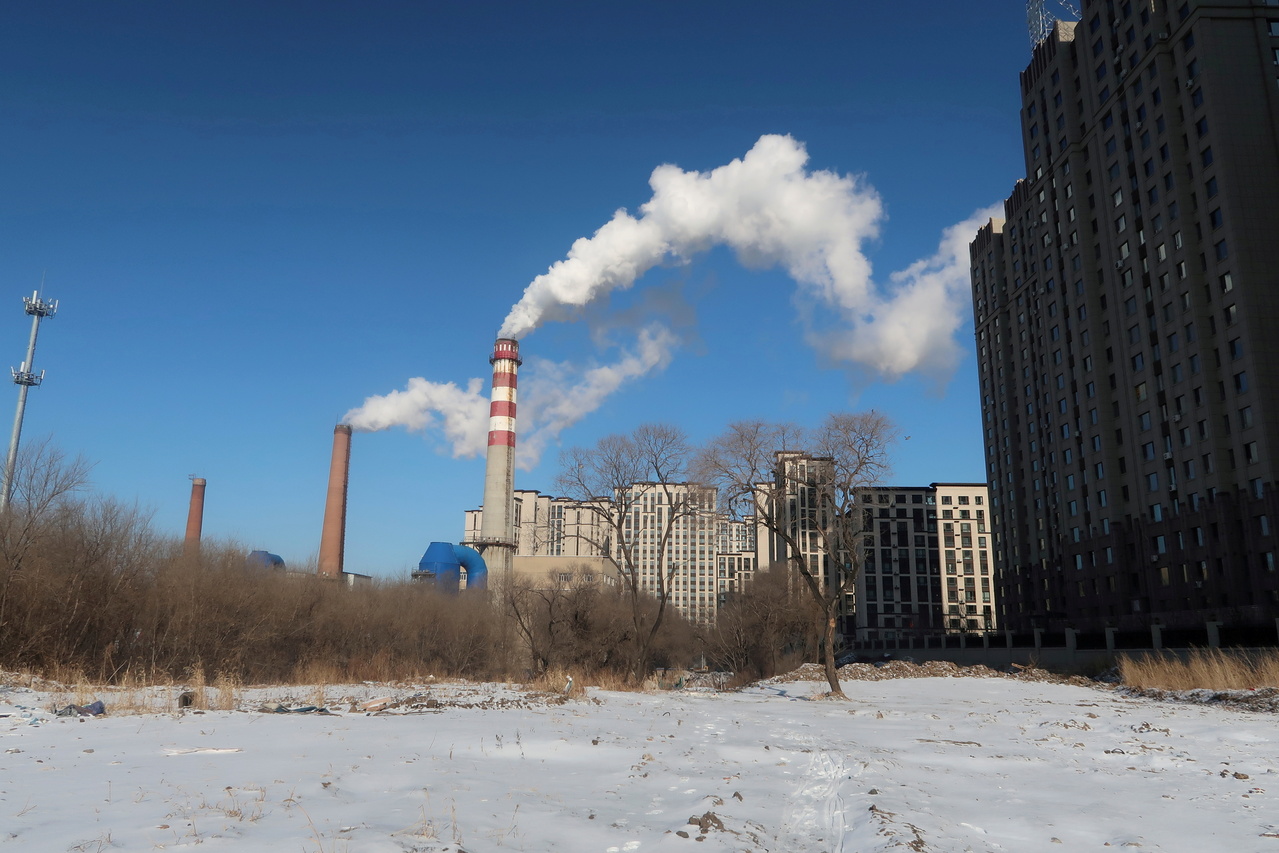China to release climate road map 'very soon', says special envoy for climate change
Sign up now: Get insights on Asia's fast-moving developments

These plans will include an action plan for peaking emissions before 2030.
PHOTO: REUTERS
BEIJING - China will "very soon" release broad and wide-ranging policy guidelines and road maps that will flesh out its plans for meeting its climate targets, the country's special envoy for climate change Xie Zhenhua said on Tuesday (Aug 3).
He also provided an update on climate talks between Beijing and Washington, pointing out that officials from both countries have had 17 rounds of discussions since his United States counterpart John Kerry visited Shanghai for talks back in April.
Mr Kerry could soon visit China again for another round of talks, he added.
Mr Xie's comments, at a virtual panel discussion on China's climate goals, are a sign that recent tensions between Beijing and Washington have not scuppered climate cooperation between the two countries.
It would also be welcome news for climate experts, who have long been waiting for detailed plans on how Beijing would meet its two climate goals of achieving a peak in carbon emissions before 2030, and attaining carbon neutrality by 2060.
These plans, which will include an action plan for peaking emissions before 2030, as well as implementation plans for various industries, would be "promulgated very soon", said Mr Xie at the session, which was organised by the Hong Kong University of Science and Technology and Our Hong Kong Foundation.
He added that it would include policies in 10 broad areas.
These include: reducing fossil fuel use; promoting industrial upgrading; promoting energy-saving, low-carbon buildings and facilities; building a green and low-carbon transportation system; developing a circular economy and improving energy efficiency; promoting green and low-carbon technological innovation; developing green finance, introducing supportive economic policies and reform measures; improving the carbon market and trading mechanism; and implementing nature-based solutions.
The central government would also require major industries and localities to come up with specific timetables and plans to achieve these goals, he said.
"Departments and regions that fail to achieve these goals will be held responsible."
Mr Xie's outline of China's plans also led to a spirited discussion on whether Beijing could be doing more to address climate change.
Under the Paris Agreement, countries have agreed to limit global warming to well below 2 deg C, and make best efforts to keep this within a lower threshold of 1.5 deg C.
Global average temperatures have risen only about 1.1 deg C, but already the world is seeing the effects of extreme weather wrought by climate change, said former US special envoy for climate change Todd Stern, pointing to heatwaves in the US, Europe, India and elsewhere, and recent destructive floods in Germany, Belgium and China.
The world must keep warming to the lower threshold of 1.5 deg C, but Mr Stern said he felt Beijing's ambitions in this current decade did not represent a "best effort" to keep warming to that level, nor is its planned expansion of coal power plants.
He added that there was "a great deal that developed countries" also had to do, but China would "significantly damage its global standing and reputation" if it was seen as hampering global efforts at meeting this goal.
"Given China's footprint and given China's influence, what China does or does not do at home has a huge impact not only on its own future, but the entire world," he said.
China is the world's largest emitter, accounting for 27 per cent of global emissions. It faces big challenges in its zero-carbon transition, including the transition away from coal, which accounts for 56 per cent of the country's energy consumption, and employs millions of workers.
In response, Mr Xie said now was the time for action, and not quibbling over global warming targets.
He pointed out that the US and Europe have both had far longer time frames to reach carbon neutrality - 40 years and 50 years respectively - while China was trying to do it in three decades.
Beijing faces many challenges and difficulties, but it was "working very hard", he said.
"Different countries start from different points, for China we have more coal energy, so we are different from other countries, we have to take into consideration our national situation... it's difficult to have a one-size-fits-all plan or target," he said.
"In short, we can't do this overnight."
The other panellists at the discussion were Lord Adair Turner, chair of the Energy Transitions Commission, an international think-tank, and National University of Singapore Asia Research Institute distinguished fellow Kishore Mahbubani.


